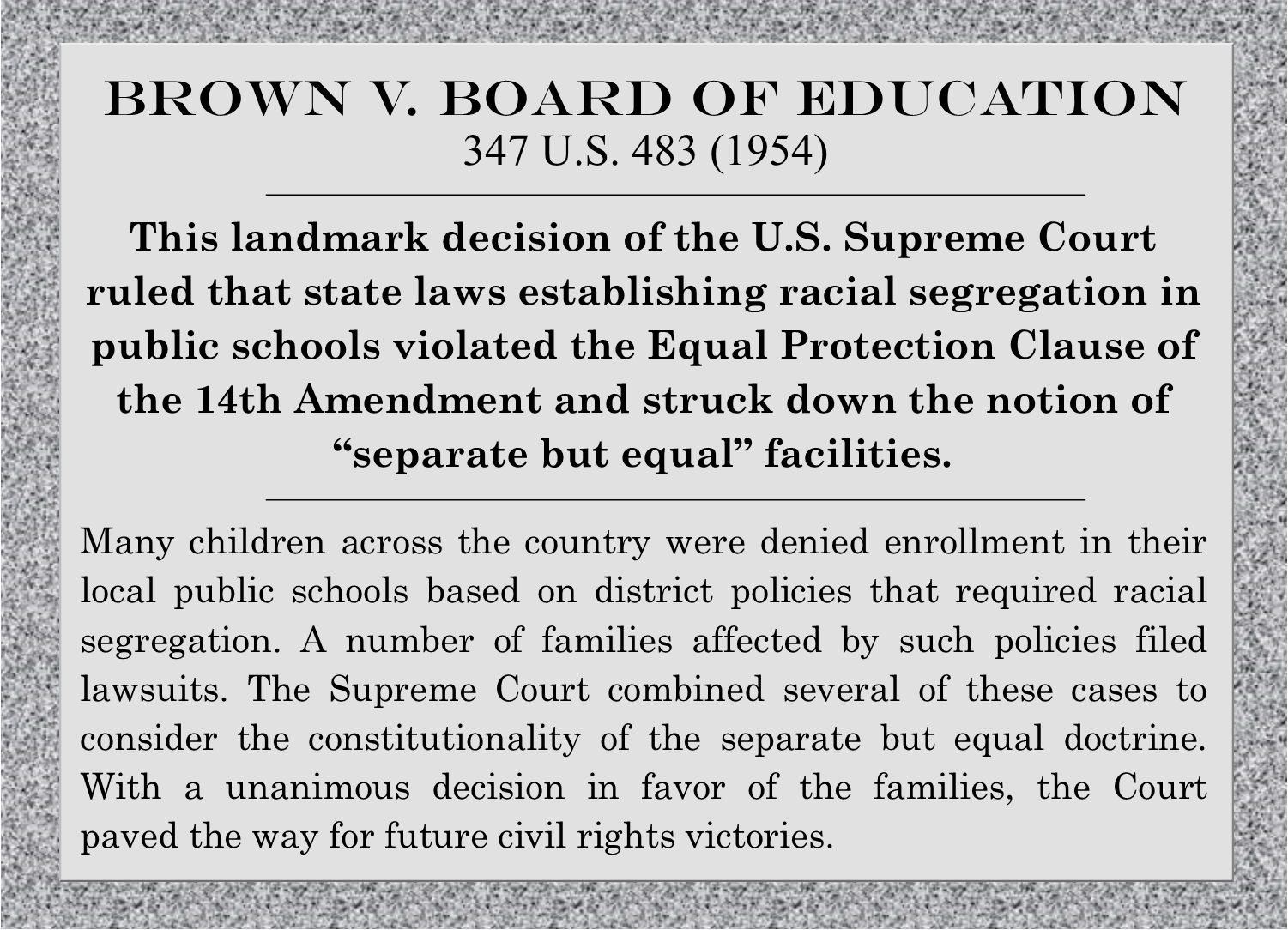Brown v. Board of Education established a legal precedent for desegregation by fundamentally rejecting the "separate but equal" doctrine and affirming the constitutional principle that state-sponsored segregation violates the Equal Protection Clause of the Fourteenth Amendment. This decision laid the groundwork for subsequent civil rights advancements and the broader desegregation of American society.
The impact of Brown v. Board of Education on desegregation in Texas and in Harris County, in particular, involved significant resistance and gradual progress. Legal challenges, federal court orders, and the efforts of civil rights activists were crucial in advancing desegregation in these areas, ultimately leading to more integrated public facilities—including the Harris County Law Library—and schools over time.
The following case summary cards were extracted from an exhibit, held in the Hainsworth Law Library, on the occasion of Brown’s 65th anniversary in 2019, providing library visitors with an opportunity to “visually experience the journey of the precedent in Brown v. Board of Education as it traveled ‘with all deliberate speed’ through federal and Texas jurisprudence, including the 48 years separating the first federal district opinion and the opinion finally declaring Topeka’s schools to be desegregated.”







